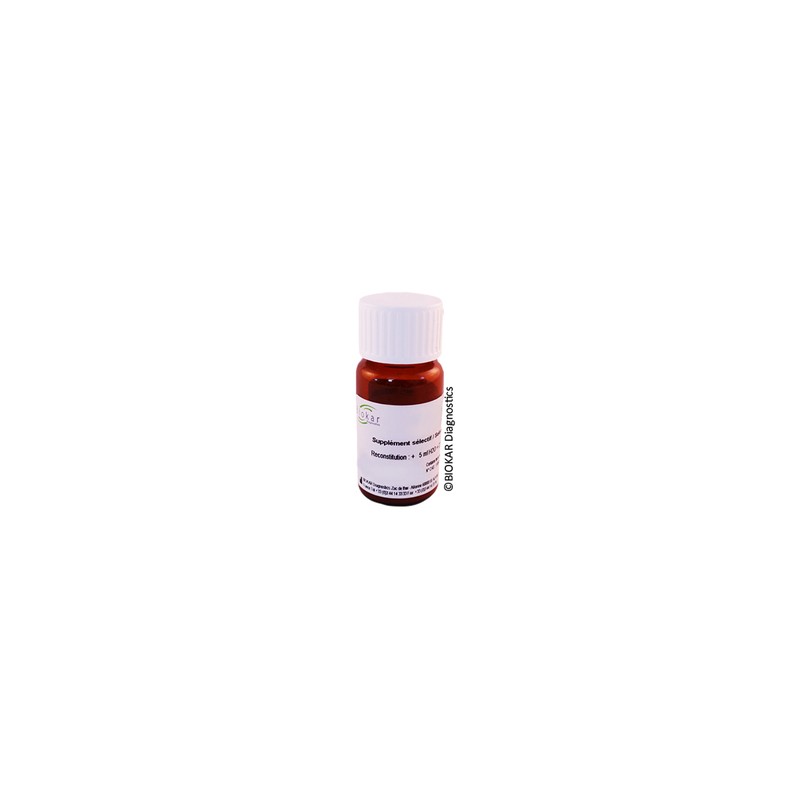- +Products
- +Allergen testing
- +Culture Media - reagents and reference material
- +Environmental testing solutions
- +Laboratory Consumables
- +Laboratory equipment
- +Microbiology equipment
- +Neogen® Food Safety Solutions
- +Temperature & Humidity Monitoring
- Services
- Support
- News
- +About Us
- Contact




Coagulase Rabbit Plasma
Rabbit Plasma recovered over EDTA and freeze-dried is used for the detection of staphylocoagulase.
Its use is recommended in the standards NF EN ISO 6888-1 & NF EN ISO 6888-3; NF V08-057-1; and NF EN ISO 22718.
Freeze-dried supplement: 10 vials (20 reactions per vial)
In compliance with regulatory requirements, a USDA permit (VS 16-3) is mandatory for shipments from Canada to the USA due to the inclusion of peptone, an animal byproduct.
Staphylococcus aureus produces two types of coagulase:
- free extracellular coagulase that reacts with plasma prothrombin;
- bound coagulase, localized in the bacterial wall, that reacts with plasma fibrinogen to produce a clot.
In tests done in tubes, free coagulase reacts primarily by forming a clot in plasma, indicating a positive reaction. In the case of coagulase-negative staphylococci, it is recommended to screen for the presence of other enzymes such as phosphatase or deoxyribonuclease, that are also indicators of pathogenicity.




